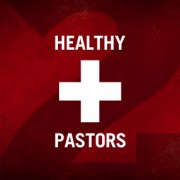Willing to Change
“Nobody changes until the pain of staying the same is greater than the pain of change.”
– Ed Stetzer
It is hardly debatable that we are creatures of habit. This is proved to me every Sunday as I look out upon the congregation. Almost without fail I know where certain people will be seated. It is as if we have assigned season ticket seating in the sanctuary. Regular routines help ensure a certain level of comfort, and we like comfort. There is of course inevitable conflict; someone is bound to [uneittingly] take your seat. But if there is one thing we can be sure of in this life it is change. Change decreases our comfort and increases our stress, so it is not uncommon to find that we generally resist it.
Our church, Calvary Escondido, has been in a transitional period, experiencing many changes over the last 6+ years. The biggest of those changes has certainly been transition in senior leadership that took place when I began pastoring the church 4 years ago. It was a huge change for all involved; a change that definitely brought about some stress and times of discomfort. By God’s grace and faithfulness it has proven to be a great transition. In my observations and interactions over the last 4 years I’ve come to see that much of the stress of this change has proven to be “eustress” or good stress.
Yes, there is such a thing as good stress. Think of finishing your degree, taking a new job, getting married, going on vacation, buying a house or having a baby. At some level each of these bring about stress, most of which is healthy and enjoyable, but it’s stress nonetheless. In a normal life such things are [essentially] unavoidable. To go a step further, I think that it is important to recognize that in the normal life of a healthy church transitional changes are necessary and good. Such transitional changes are about to become a far more regular and normal occurrence. The overwhelming majority of Calvary Chapel Pastors are among the Baby Boomer generation which, as of last year, has now hit retirement age.
I recognize and understand that retirement for Boomer’s looks quite a bit different than it did for those of the “Builder” generation. This is all the more true for Christians (especially pastors) who find no biblical support for retirement as we [currently] know it in America. That said, I think we all recognize that many of our pastors and churches are in transition, whether we were planning for it or not. Such transition does not mean a rocking chair on a porch retirement, but it may mean a life that looks radically different than the previous 25-30 years has.
Embracing Change
As I set now, 4 years into our [very successful] transition at Calvary Escondido, I am incredibly grateful that, although it was difficult at first, my pastor embraced this transition and change. Pat Kenney had pastored CCEsco for 27 years. He had seen the church grow from 25 to over 500, and move from a school, to rented spaces, to the purchase and buildout of our very own facility. Under his leadership CCEsco had seen great leaders raised up, missionaries and church planters sent out, and new para-church ministries established. When God began to bring the initial winds of change, Pat did not fight against it. I know for certain that he was not planning such a move, nor did he actively set out for transition. If God had so willed, Pat would have continued pastoring this church for many years into the future. But when God began to direct in new paths, Pat was willing and open to what God was doing.
It is very easy for us to hold on to the status quo, and find ourselves kicking against the goads of God’s will. But being lead by His Spirit means being open to His moving, even if we are not initially desiring the change.
Mitigating Change
One of the reasons that our transition has gone so smoothly is that many years before it happened our Elders, in recognize the call God had placed upon my life, began allowing me the opportunity to preach and teach before the larger body. To that point I had been a youth pastor, with very little interaction with the adult congregation, but at 22 I was given the responsibility of leading our Saturday night service and regularly rotated in on Sunday’s and Wednesdays. A year before our transition in 2008, I began teaching nearly all of our Sunday services. This teaching schedule was not the product of a transitional plan, as much as it was out of necessity. Pat’s wife was undergoing treatment for cancer – which ultimately took her life – and Pat was facing health problems of his own that precluded him from taking a regular preaching schedule. Even so Pat was willing to allow the bulk of the teaching responsibilities to fall to his 27 year-old assistant. This openness greatly mitigated the ultimate transition; so much so that when it was announced in April of 2008, there were many newcomers to CCEsco who already knew me as their pastor.
Maintaining Consistency
Sure, we’d like things to stay the same, but they rarely do. It is however important to maintain a level of consistency in whatever areas possible. Thankfully we have a great team of elders, leaders and staff at CCEsco. If it weren’t for the consistent leadership team, I’m fairly certain we would not have had as successful a transition as we have. There is no way that everything will remain the same when new leadership steps in, but maintaining consistency of core values and mission is critical. Furthermore, I believe it is important to make changes strategically and slowly in a church with a well established culture. Even if they are big changes, they should be presented clearly and sometimes implemented incrementally.
After almost 6 years being married and 4 years as a head pastor (it’s hard for me at 32 to use the word senior :)) I’m more convinced now than ever that a church is like a bride; not my bride, but a bride nonetheless. My bride [Andrea] desires security and consistency. If I were sporadic or fickle she would have a very difficult time following or being submissive. Although the church is not the bride of the pastor (some pastors sure live like it is, but that is perhaps a future article), she still desires security and consistency. Sporadic and fickle leadership will scatter the sheep; thus maintaining consistency wherever possible during periods of change is important. But resistance to change is not an option.
As the winds of change fill the air among many of the churches in our movement, it is vital that we face them with reasonable thoughtfulness.










